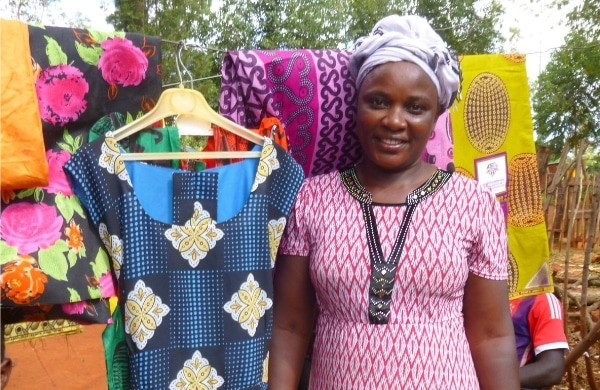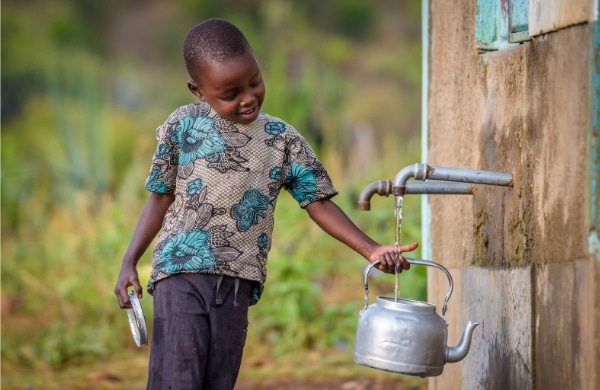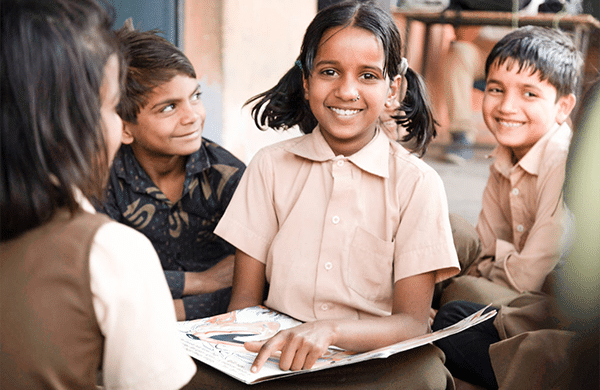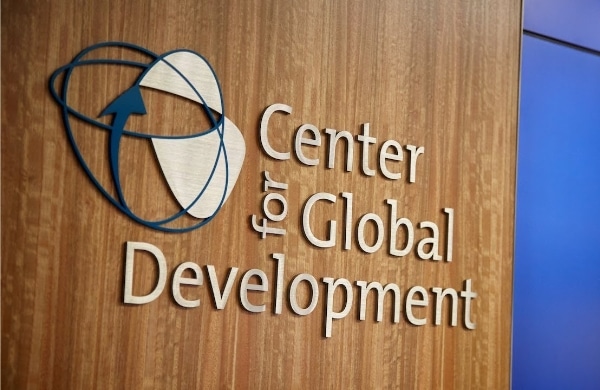
Results-Based Transfers: The Impact of the Incentive Program for Improving Municipal Management and Modernization in Peru in the Sectors of Rural Sanitation and Solid Waste Management
2024
This publication analyzes the impact of Peru’s Incentive Program in rural sanitation and solid waste management over 10+ years, highlighting its evolution, results, and lessons. It complements existing cases of Results-Based Financing (RBF) in Latin America, promoting RBF as an effective tool for improving service delivery.

Incentivizing a focus on learning outcomes in education systems: a guidebook for education practitioners
2024
This guidebook addresses a critical gap in the field by supporting practitioners to identify suitable RBF applications and develop effective implementation strategies. The guidance starts from a recognition that RBF may not be suitable in every scenario and that, to be effective, RBF mechanisms generally require certain pre-conditions, such as a supportive data environment, sufficient stakeholder buy-in and a regulatory or legal framework that enables funding or incentives to be tied to the achievement of outcomes.

Strengthening Accountability and Performance in Multisectoral Initiatives
2023
This concept paper outlines one approach to mitigating those risks. After providing an overview of the common challenges facing cross-cutting programs in general, this paper then draws on Instiglio’s public sector experience to explore how a delivery accelerator comprised of a performance management system, a centralized delivery unit and a performance-based incentive structure presents a possible solution, and what such an accelerator could entail for a multi-agency early childhood development (ECD) initiative. It concludes with a brief outline of an approach that could be used to design and implement an effective system.

Learning Agenda for the Living Goods Scaling-up Results-Based Financing for Community Health Program
2023
This Learning Agenda presents an evaluation of the community health-focused Results-Based Financing (RBF) mechanism that was deployed by Living Goods in Uganda between 2020-2022. The aim of the RBF mechanism was to improve the cost-effectiveness and quality of community health services for underserved and at-risk populations. The document consolidates insights from the program, assessing the extent to which its objectives were achieved and presenting key lessons learned.

RBCF to Support Mitigation Policies in Developing Countries
2023
This note seeks to inform the use of results-based climate finance (RBCF) by World Bank trust funds for the implementation of climate change mitigation policy in low- and middle-income countries. The note outlines the role RBCF can play in support of the implementation of climate change mitigation policy and outlines how RBCF can be designed and applied to this end.

Results-Based Financing Evidence Review and Key Lessons Learned
2023
The objective of this annotated bibliography is to (1) provide all funders’ staff with an accessible summary of the relevant rigorous evidence on RBF’s effectiveness, (2) provide the staff interested in applying RBF an overview of the relevant guides to RBF’s effective use and (3) provide the staff interested in understanding experiences with RBF a summary of key insights and lessons from a sample of past programs and reviews.

Village Enterprise Development Impact Bond
Final Process Review
2022
This review examines the impact of using an impact bond rather than a traditional funding model to implement Village Enterprise’s poverty graduation model. It aims to determine if this approach affected the program’s implementation and if the impact bond design was cost-effective for instrument design and implementation efforts.

Practical Guide to Results-Based Financing
for Water and Sanitation
2022
This guide offers guidance on using the Results-Based Financing (RBF) mechanism in water and sanitation programs to improve the management of Public Service Companies (PSCs). It includes essential elements and questions to consider when structuring RBF mechanisms, especially for developing pilots.

Catalyzing Climate Results with Pull Finance
Residential A/C and Agricultural stubble burning cases
2022
In a project with the Center for Global Development (CGD), Instiglio argues that pull financing is an underutilized tool with the potential to drive the development and adoption of critical technologies necessary to address the globe’s climate crisis. These can deliver urgently needed climate results and support development objectives across low and middle-income countries.

Subnational Competitiveness Grants
Guidebook
2022
This guidebook provides practical advice to stakeholders, including governments and development practitioners, on assessing the relevance of an SCG (Subnational Competitive Index) to specific contexts and designing and implementing an SCG program to maximize impact and minimize risks.

Using Results-Based Financing to Advance Policy and Institutional Reform
2021
It has become increasingly evident to the Millennium Challenge Copromotion (MCC) that, in addition to programmatic investments, institutional reform plays a critical role in economic growth. Given this insight, it is imperative that MCC is able to identify and use diverse tools to support effective reform, enabling MCC to advance its mission and use its unique position to facilitate reform in recipient countries.

MCCU Results-Based Financing Activity: Learning Agenda Brief
2021
An integral component of the RBF Activity was the implementation of a learning agenda that sought to (1) evaluate the effectiveness of the RBF in driving performance improvements, (2) understand the specific RBF drivers that motivated improvements, and (3) identify factors that supported or constrained the RBF effectiveness. The remainder of this brief summarizes key findings and recommendations uncovered during the learning agenda evaluation.

Guiding MCC’s use of Results-based Financing: Driving improved employment outcomes
2021
This Guide aims to support the Millennium Challenge Corporation (MCC) staff to effectively use Results-Based Financing (RBF) in relation to workforce development (WfD) programs. To this end, MCC staff should engage with three key stages: Due Dilligence, RBF Design, and RBF Implementation.

Learning Agenda of the First Social Impact Bond in a developing country
Executive Summary
2020
Instiglio conducted a process evaluation of the first social impact bond in a developing country (Colombia)with SIBs.CO. This study shares the learnings acquired from the design and implementation phases of the impact bond. It seeks to promote and motivate more governments and stakeholders to use results-based approaches as innovative solutions in public policy.

Designing a Results-Based Financing Model
Recommendations & Guidelines
2021
The document provides guidance on designing a Results-Based Financing Model and covers key concepts related to payment metrics, performance targets, payment structures, and analyzing incentive schemes for decentralization. The objective is to offer guidance on creating a flexible model that can meet the implementer’s requirements or goals.

The COVID-19 Adaptation Fund
Learning Agenda Report
2020
Instiglio and Global Development Incubator launched COVID-19 Adaptation Fund to support service providers in Kenya and Rwanda. The report highlights successful digital and social protection innovations that improved access to government social protection and met beneficiary needs during the pandemic.

Learning agenda – First social impact bond in a developing country
2019
Instiglio conducted a process evaluation of the first social impact bond in a developing country (Colombia)with SIBs.CO. This study shares the learnings acquired from the design and implementation phases of the impact bond. It seeks to promote and motivate more governments and stakeholders to use results-based approaches as innovative solutions in public policy.

Results-based financing to enhance the effectiveness of Active Labor Market Programs
2018
Instiglio prepared a thought-leadership report assessing the potential of results-based financing to enhance Active Labor Market Programs (ALMPs) and improve the livelihoods of vulnerable populations, particularly women and youth. Our research demonstrated that ALMPs often fall short of the desired results due to problems which RBF can help address.

A guide for effective results-based financing strategies
2018
Instiglio was engaged by GPRBA to create a report that gives strategic guidance and diagnostic tools for development practitioners and funders seeking to enhance their impact with results-based financing (RBF). It provides guidance on when to use RBF, what types of RBF instruments are suitable for different objectives and context, and what type of RBF design features should be considered to maximize impact.

Sector note: RBF in agriculture and land administration
2018
A variety of factors constrain the agriculture and land administration sectors such as quality inputs, knowledge, infrastructure, market access and affordable credit. In response, international development agencies are exploring innovative financing mechanisms to bridge these gaps. This Sector Note provides an analytical framework for the application of results-based financing in agriculture and land administration interventions.

Design memo: Village Enterprise Development Impact Bond for poverty alleviation
2018
This design memo outlines the components of the Village Enterprise Development Impact Bond, which seeks to improve the income levels of 13,000 households living in extreme poverty in Kenya and Uganda. In this project, payment to Village Enterprise (the implementer) will be made 100% on the achievement of verified outcomes, which is a first and bold experiment in international development.

A practitioner’s guide to results-based financing: Getting to impact
2017
Through this open source guidebook, we are sharing the expertise, practices, design frameworks, and other insights and lessons we have acquired and developed thus far. We hope it will impart a deeper understanding of where to apply RBF and how to design high-quality and successful results-based financing projects.

Design memo: Educate Girls Development Impact Bond
2015
This document outlines the components of the Educate Girls Development Impact Bond. A joint project between the Children’s Investment Fund Foundation, Educate Girls, the UBS Optimus Foundation, IDinsight, and Instiglio to increase enrollment for girls and learning for all children in the district of Bhilwara in rural Rajasthan, India.

Funding for results: A review of government outcomes – based agreements.
2014
“The Beeck Center is proud to provide this resource to policy makers around the world. We hope this enables them to create sustainable programs that yield results. The report offers a framework for the government on how to align incentives to ensure public funds are managed to achieve social outcomes,” said Sonal Shah, Executive Director of the Beeck Center.

Investing in social outcomes: Developing impact bonds
2013
This report shows how development impact bonds (DIBs) could work in developing countries, outlines its advantages over alternative funding mechanisms, and offers recommendations for developing a viable DIB market. Six case studies illustrate the breadth of social issues to which the approach can be applied, and a technical section lays out considerations for the design of DIBs for audiences interested in their implementation.
